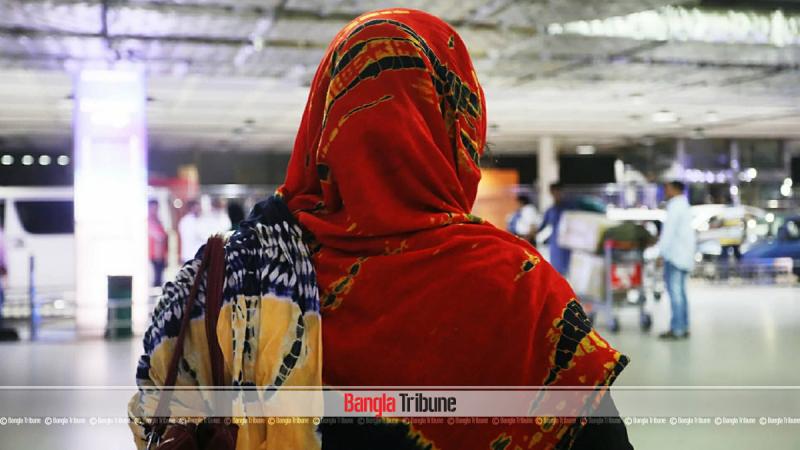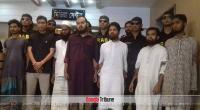 Laboni (not her real name) had gone to Saudi Arabia as a house-help for better future. But after two years of harrowing experience she came back.
Laboni (not her real name) had gone to Saudi Arabia as a house-help for better future. But after two years of harrowing experience she came back.
She was among the 65 women, who landed Dhaka Saturday night.
Recounting her days in the middle-eastern country, she said her employer severely tortured her.
“I had to clean a house of 10 bedrooms everyday, but they didn’t give me to eat properly. I wanted to quit, but every time I said that they would severely beat me.
She said that recruiting agent had taken Tk 60,000 from her and she flew with promise of a monthly salary of 1,000 Saudi Riyals, all for the hope for a better life.
But now she faces another difficulty at home as her husband and in-laws refused to accept her in the family.
“I have been living with my elder sister for the last few days. I don’t think they (husband and his family) will not accept me any more.”
Bangla Tribune caught up with the husband over telephone. He initially declined to speak, but later said, “My parents do not want her in the home. I can’t accept her after what happened. I will not go against my parents.”
Afsana Khanam’s dream for better future shattered in just two months.
“I was kept confined in a room for seven days with six other women before they sent me to work as a house-help,” she told Bangla Tribune before adding that she spent Tk 20,000.
“The employer’s wife used to severely beat me. I couldn’t understand their language and any delay would be responded with beating with baton. I managed to flee.”
Khanam said after arriving Dhaka, she contacted with her family, but they had asked her not to come home. “My brother said he can’t do anything. The locals speak ill of me. I don’t know what I will do now.”
That’s the case for several others, who came back— tortured abroad and now unwanted at home.
“In almost all cases that the family refuses to accept; in few cases we managed the families but in reality, the women remain to be outcasts,” says Shariful Hassan, who has worked with migrate workers of Bangladesh.
Hassan, the head of Migration Programme at BRAC emphasised on awareness and humanity.
“We have arranged for shelters and counselling for the victims. What I don’t get is why the society treat them as cast as it was their fault.”
 Others
Others
30762 hour(s) 59 minute(s) ago ;
Afternoon 01:53 ; Saturday ; Apr 20, 2024
Unwanted at home: The reality of women back from Saudi
Send
Saddif Ovee
Published : 08:00, May 25, 2018 | Updated : 22:10, May 25, 2018
Published : 08:00, May 25, 2018 | Updated : 22:10, May 25, 2018
0 ...0 ...
/zmi/
Topics: Top StoriesExclusive
- KOICA donates medical supplies to BSMMU
- 5 more flights to take back British nationals to London
- Covid19: Rajarbagh, Mohammadpur worst affected
- Momen joins UN solidarity song over COVID-19 combat
- Covid-19: OIC to hold special meeting
- WFP begins food distribution in Cox’s Bazar
- WFP begins food distribution in Cox’s Bazar
- 290 return home to Australia
- Third charter flight for US citizens to return home
- Dhaka proposes to postpone D8 Summit
Unauthorized use of news, image, information, etc published by Bangla Tribune is punishable by copyright law. Appropriate legal steps will be taken by the management against any person or body that infringes those laws.
Bangla Tribune is one of the most revered online newspapers in Bangladesh, due to its reputation of neutral coverage and incisive analysis.
F R Tower, 8/C Panthapath, Shukrabad, Dhaka-1207 | Phone: 58151324; 58151326, Fax: 58151329 | Mob: 01730794527, 01730794528


